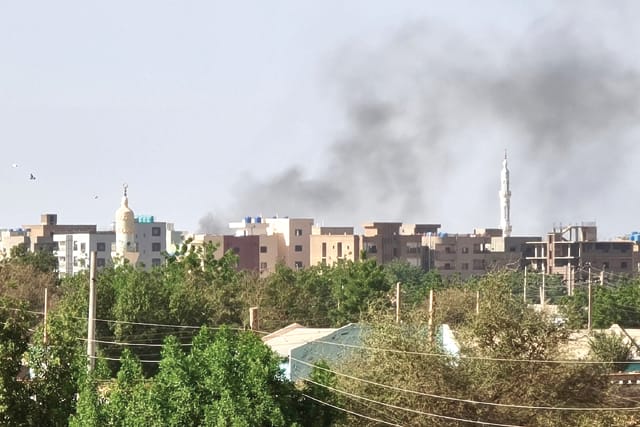The United States has called on Sudan’s warring parties to establish a permanent nationwide ceasefire and resume the process of transitioning to civilian rule.
The plea comes as tensions rise with neighboring South Sudan.
During a monthly briefing on the situation in the disputed area of Abyei along the Sudan-South Sudan border, US Deputy Ambassador Robert Wood expressed solidarity with the people of Sudan in their unwavering commitment to democracy.
He urgently urged the warring factions to implement and uphold a ceasefire, emphasizing the need to promptly resume Sudan’s transition to civilian governance.
The transition to civilian rule in Sudan, which followed decades of military dictatorship, was disrupted by an army-led coup in October 2021.
Subsequently, clashes between the Sudanese military and the paramilitary Rapid Support Forces escalated in mid-April, further derailing hopes for a democratic transition.
The conflict has had regional implications, leading to an influx of Sudanese refugees into neighboring countries and exacerbating tensions with South Sudan.
The Abyei region, which is home to several oilfields, has been a longstanding source of dispute between Sudan and South Sudan since the latter gained independence in 2011.
UN peacekeepers were deployed to the area that same year with the aim of working towards a permanent border agreement.
Mr. Wood condemned the ongoing hostilities in Khartoum, emphasizing that they not only endanger the safety of civilians but also hinder the efforts of UN personnel stationed in Abyei.
He expressed disappointment over the impact of the fighting on the safety and security of the UN Interim Security Force for Abyei (Unisfa) personnel, as well as their ability to carry out mandated tasks such as protecting civilians, supporting humanitarian efforts, and facilitating a peaceful resolution to the final status of Abyei and its border issues.
Hanna Tetteh, UN Special Envoy for the Horn of Africa, expressed concerns about the conflict’s impact on South Sudan, noting the potential return of over 200,000 South Sudanese refugees from Sudan if stability is not restored soon.
This would pose a significant challenge to a country where two-thirds of the population already require humanitarian assistance.
Michel Xavier Biang, the UN ambassador of Gabon speaking on behalf of the council’s three African members, called on Sudan’s neighboring countries to mobilize efforts to facilitate the repatriation of international personnel and the hosting of refugees.
The United Nations estimates that an additional five million people will require emergency assistance within Sudan, while 860,000 are expected to flee to neighboring states that are already facing crises, exacerbated by cuts in aid from wealthy nations.
The World Health Organization has reported a confirmed death toll of over 600 and 5,000 injured in Sudan.
UN humanitarian chief Martin Griffiths has proposed a “Declaration of Commitments” to ensure the safe passage of humanitarian relief, and discussions on this proposal are currently underway in Jeddah, Saudi Arabia.
The UN hopes for swift endorsement of the declaration to scale up relief operations and meet the needs of millions of people in Sudan.











